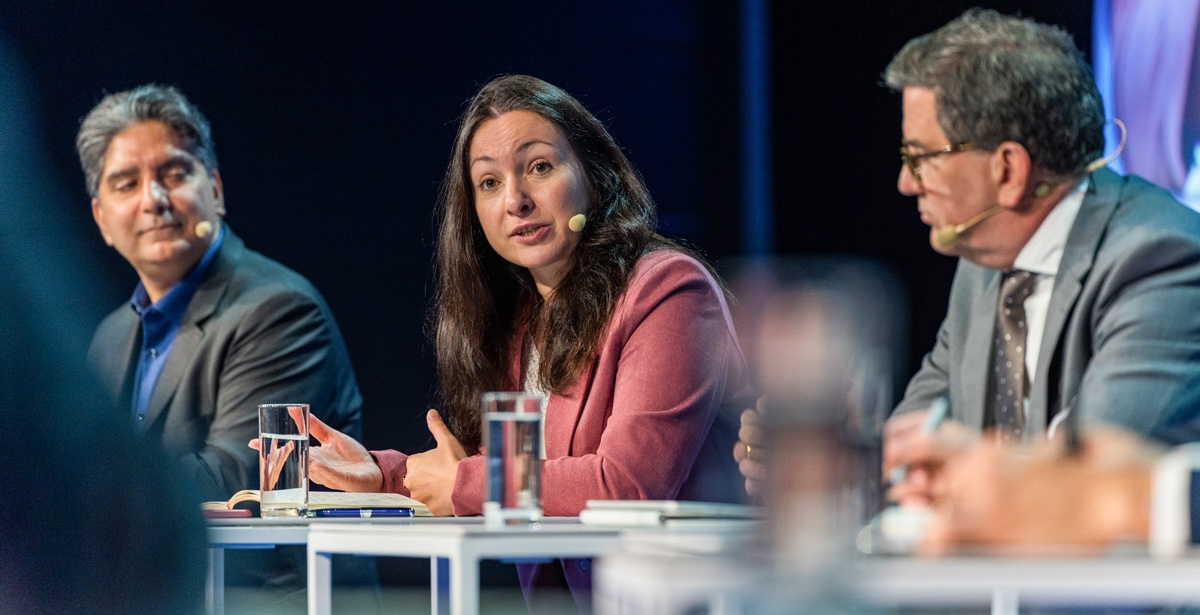Europe Automakers Must Step Up to Enhance Responsible Sourcing

By Julia Poliscanova, Senior Director for Electric Vehicles and E-mobility at Transport & Environment.
European car manufacturers have pledged to put millions of electric vehicles on the road by 2030. This requires substantial amounts of battery minerals like lithium, nickel, and cobalt. However, a recent Transport & Environment analysis reveals a stark reality: only a fifth of these materials have been secured.
During the "Responsible Sourcing for the Automotive Industry" panel at the Raw Materials Summit in May, I highlighted three key areas where the automotive sector can leverage its influence to enhance responsible sourcing and mitigate supply chain risks.
 Boosting resilience by driving European onshoring efforts
Boosting resilience by driving European onshoring efforts
European automotive manufacturers have a crucial role in supporting European onshoring efforts. Onshoring the EV supply chain fully to Europe would cut the emissions of producing a battery by at least 37% compared to a China-controlled supply chain, according to new analysis by Transport & Environment (T&E) in May.
Using renewable energy rather than grid average can double this reduction. Producing Europe’s demand for battery cells and components locally would save an estimated 133 Mt of CO2 between 2024 and 2030, equivalent to the total annual emissions of an entire country like the Czech Republic.
European carmakers can drive this transformation by investing equity in European supply chains and forming partnerships to provide off-take agreements to European companies. This support is crucial for newcomers who struggle to compete against commercially established value chains elsewhere.
Applying due diligence and responsible contracting
Automakers also have a vital role in ensuring their supply chains are clean, sustainable, and responsible. The concept of responsible contracting, recently pioneered in the garment industry, is one promising approach. It involves working together and sharing responsibility across the supply chain rather than passing the burden down to the final supplier in countries in the Global South.
Most importantly, what Europe does with its due diligence framework about to be implemented versus the EU battery regulation will determine the success of the automotive industry's efforts to establish responsible supply chains. It's important that we don't view this just as a traceability or IT exercise. It's about engaging with suppliers, formalising and scaling responsible artisanal mining practices in places like Congo, and working with suppliers to solve the problems. When engagement isn't possible, disengagement should be considered, but the primary focus must be on working together with suppliers to mitigate and improve risks, and to support them with new technologies and practices that benefit communities.
Engaging directly with mining companies
Car manufacturers, especially large OEMs that require large volumes of raw materials, can work directly with mining companies to improve responsible sourcing. By promoting responsible suppliers to tier-one status and engaging with them directly, these manufacturers can leverage their purchasing power to drive positive change. For those with smaller volumes, joining international certification schemes like the Initiative for Responsible Mining Assurance (IRMA) can send the signal of their demand for responsibly sourced materials.
The power of the European single market
On the panel, I also shared my thoughts on the power of the European single market and how smartly designed policies can attract investors and promote local, cleaner production. However, our funding framework is an example of how not to design a policy. Here, we can learn a lot from the U.S. regarding the simplicity and predictability of their policies, notably the US IRA.
However, in Europe, we offer more than just regulations; we have one of the largest consumer markets in the world, making it highly attractive. When the right signals are given, investors will invest, as is the case with Europe’s decision to have only zero emission cars starting 2035. But what is missing is a comprehensive green industrial strategy to reward local manufacturing.
Implementing a strict CO2 per kilowatt-hour criterion for batteries could be one such industrial measure as it would reward cleaner local producers. Similarly, if the US, Canada, Australia, and Europe jointly committed to purchasing only sustainably sourced nickel, via a carbon threshold to access the market rather than a price mark-up, it would support cleaner western suppliers.
We must be careful not to suggest that it’s up to the consumer to drive these changes. When consumers visit car dealers, they are at the end of a long chain of B2B decisions and cannot request changes to the battery at that point. It is the role of governments and regulations to put the right measures in place.
In conclusion, while progress has been made, there is a pressing need for increased action from automakers and governments in the coming years. The industry must leverage its clout to play a pivotal role in responsible sourcing, and smart regulations should provide the framework for the industry to succeed.
-----
Julia Poliscanova joined Transport & Environment (T&E) in June 2015 and leads the organisation's work on vehicles, electrification, and supply chains across Europe. Her focus includes EU vehicle emissions standards, sustainable batteries, and critical raw materials.The Raw Materials Summit 2024 was organised by EIT RawMaterials, the world's largest network in the raw materials sector. The next Summit will take place on 13-15 May 2025, where responsible sourcing will be further explored. www.eitrmsummit.eu


